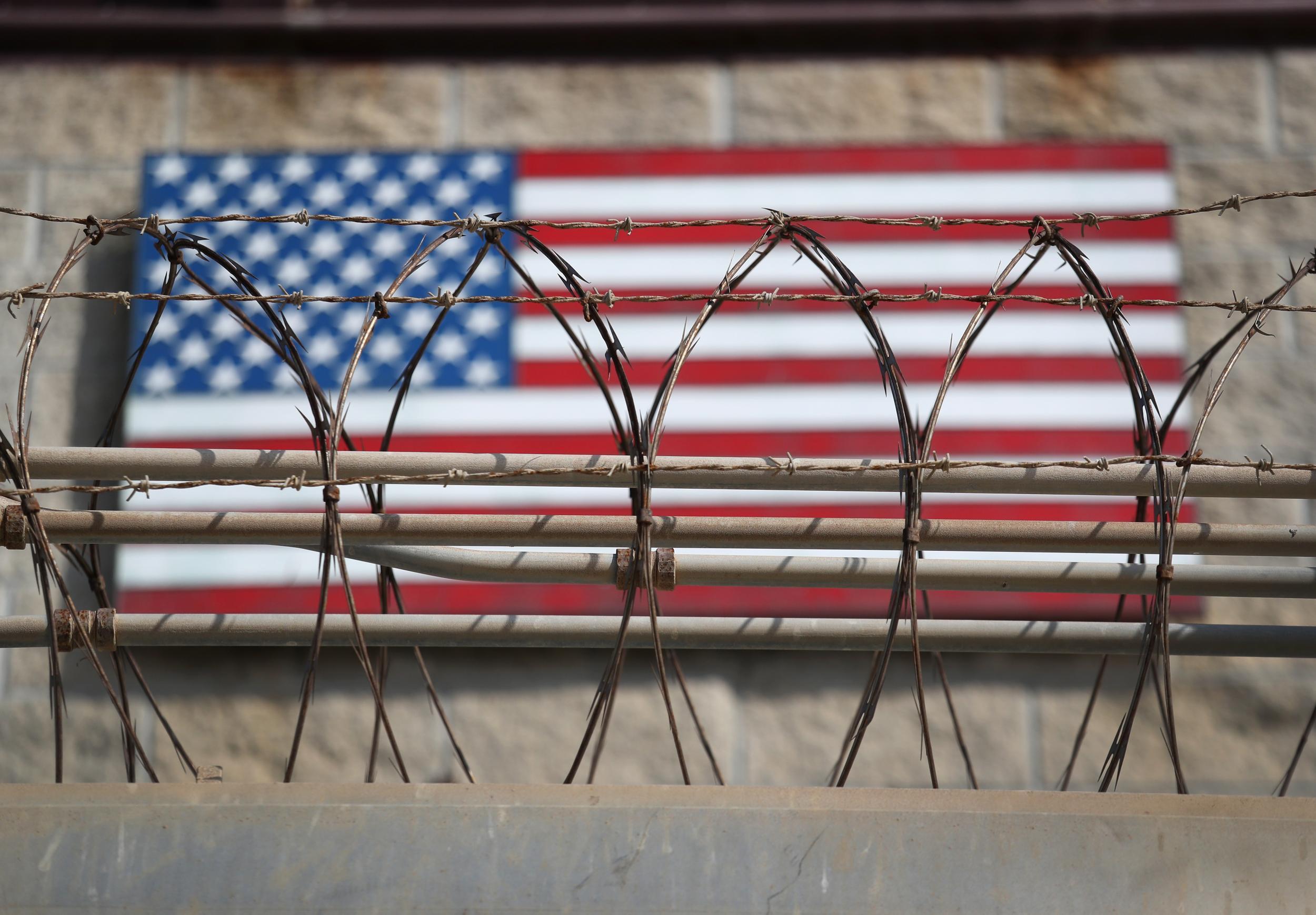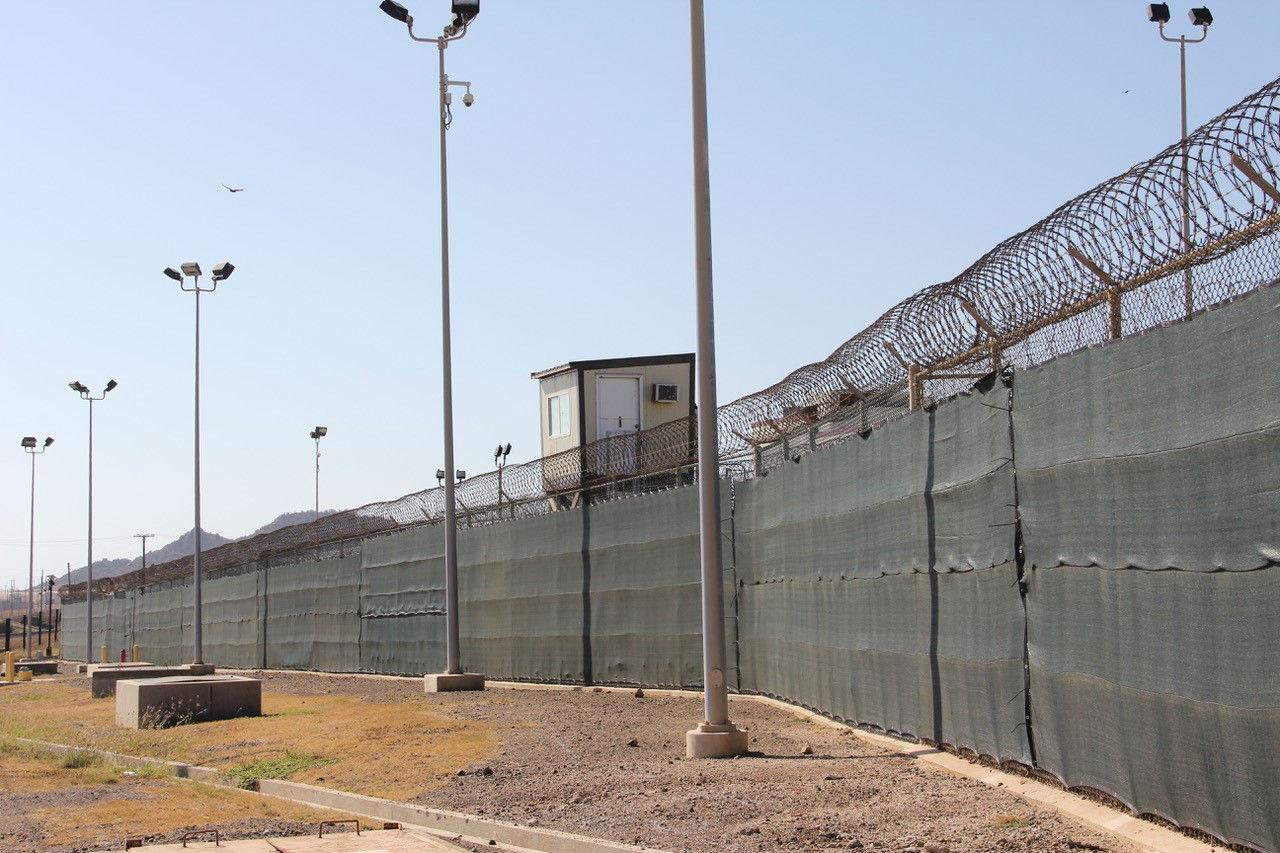Donald Trump has made clear he wants to send 'bad dudes' to Guantanamo Bay - will the Isis 'Beatles' end up there?
US and UK face difficult discussions on how to deal with captured men

Britain may be tempted to “outsource” the prosecution of two Isis fighters captured in Syria to the US, where it has often been easier to secure terror convictions, experts believe.
The US military has confirmed British citizens Alexanda Kotey and El Shafee Elsheikh, the last outstanding members of a group known as “the Beatles” for their English accents, were captured by the Syrian Democratic Forces (SDF), a Kurdish-led militia. They were detained last month and US Special Forces have been interrogating them.
As relatives of those killed by the men – the group was known for its torture and execution of Western hostages – welcomed their capture, the question of what to do with the men has suddenly become a pressing issue.

“We are still considering options regarding Elsheikh and Kotey, but rest assured our intention is to hold anyone accountable who commits acts like those they are alleged to have committed,” said Eric Pahon, a Pentagon spokesman.
Some experts believe although the men are British citizens, the UK government may prefer for them to be tried in the US, where courts have been willing to convict foreign terror suspects, even when their alleged offences have occurred outside the US.
The situation is complicated by Donald Trump’s determination to keep open and expand Guantanamo Bay, seeing it as a preferred place to the civilian courts for dealing with so-called “bad dudes”.
Last month, in his State of the Union address, the President announced he had signed an executive order to keep open the prison, located in Cuba, therein reversing an order signed by Barack Obama to close it. At the height of George W Bush’s so-called war on terror the camp had up to 800 inmates, but today houses 41.
The British government has largely been reluctant to extradite prisoners to the US if a trial could result in the death penalty, or if an individual is to be sent to Guantanamo.
“Over the last ten years there been a pattern of the UK citizens being brought to the US – either by extradition or rendition,” said Arun Kundnani, a British expert on terrorism who currently teaches New York University.

“What has been going on is the outsourcing of the prosecution of terrorism crimes.”
Mr Kundnani pointed to the case of British resident Abid Naseer, a Pakistan-born al-Qaeda member of suspected of plotting to set off a bomb in Manchester and the New York subway system. He was extradited and tried in the US, where he was convicted after the British Crown Prosecution Service said evidence compiled by Greater Manchester Police was insufficient to try him.
He said another example was Mahdi Hashi, a dual national who was stripped of his citizenship after joining the Somali militant group Al Shabaab. He was tried in the US federal court, where he pleaded guilty to providing material support to Al Shabaab and sentenced to nine years.
Two other men extradited to the US for trial were Talha Ahsan and Babar Ahmad.
On Friday, the British Home Office would not confirm if Kotey and Elsheikh had been stripped of their citizenship. If they have, it would not prevent them being put on trial in the UK, even if the offences in question were committed abroad.
Laura Pitter, senior counsel for Human Rights Watch, said that if the US were to take custody of the two militants, they should also be tried in the US court system.
“The US should not jeopardise their prosecutions by sending them to the dysfunctional military commissions at Guantanamo where important cases involving serious crimes have languished for years,” she told Reuters.
Under the Obama administration, there was a concerted effort to use civilian courts to try terror suspects, even when confronted by problems such as then New York Mayor Michael Bloomberg’s opposition to trying alleged 9/11 ringleader Khalid Shaikh Mohammed and four other men over the attacks in the city. The five men are still held at Guantanamo.
Karen Greenberg, Director of the Centre on National Security at Fordham University School of Law, has written that civilian courts went out of their way to bend to special requirements needed for some terror trials. They did so “to prove flexible enough to handle any difficulties presented by terrorism cases”.
She said during his confirmation hearing, Deputy Attorney General Rod Rosenstein, a career federal prosecutor, signaled his preference for using federal courts for terrorism prosecutions – a view that was shared within the department.
“Under Trump and Sessions, things may be shifting. Sessions has repeatedly declared his opposition to closing Guantanamo. Trump, similarly, has embraced the idea of sending Americans to reside among the “bad dudes” at Gitmo. Under current law, US citizens cannot be sent to Gitmo,” she wrote recently in The Atlantic.
Yet for of all the affection for Guantanamo voiced by Mr Trump and his Attorney General Jeff Sessions, efforts to prosecute militants there under controversial military commissions have repeatedly run into problems.
According to Human Rights Watch, just eight detainees have been convicted by the commissions after trial or plea bargain and three of these have been overturned or partly overturned. Of the 41 prisoners still being held, just seven face charges.
Nick Lewin, a New York-based lawyer who served for more than a decade as a federal prosecutor and senior FBI official, including as the Special Counsel to former FBI directors Robert Mueller III and James Comey, said that in counterterrorism cooperation with the US, Britain had been consistent about not sending people across the Atlantic if they could face the death penalty or be dispatched to Guantánamo.
“Kotey and Elsheikh are alleged to have brutally murdered multiple American citizens and, for that, they may face the death penalty in US civilian courts,” he said.
“So the real question is this – will the US disregard the UK’s objections and try to take custody of these men, either to be held as law-of-war detainees in Guantánamo Bay or subject to the death penalty in civilian court?”
Clive Stafford Smith, Legal Director of Reprieve, a London-based human rights organisation that represents several men held at Guantanamo, said the UK government would be “very ill advised” to allow the Trump administration to the prison camp.
“All sensible people agreed long ago that it was not a great advertisement for civilisation or the rule of law,” he said.
He said if the two Britons captured in Syria were sent there, the move would likely be seized on by their supporters.
“Guantanamo has always been used by mad extremists as a propaganda tool. It has made the world more dangerous and not safer.”
Join our commenting forum
Join thought-provoking conversations, follow other Independent readers and see their replies
Comments
Bookmark popover
Removed from bookmarks